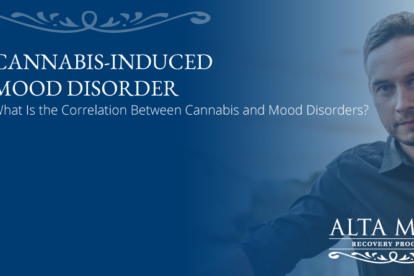Marijuana Addiction: Overcoming Shame and Seeking Treatment

Despite its reputation as being a fairly benign recreational drug, marijuana addiction is a very real problem for many people—a problem which may be further compounded by guilt and shame, in addition to any co-occurring addictions and disorders. But, by coming to terms with your addictionand building a support network free of stigma, you can begin to move past shame and ask for the help you need in order to seek out a sustainable recovery via long-term residential treatment.
While the days of Reefer Madness and the sensationalization of marijuana use and abuse seem to be largely behind us, a shadow of stigma and shame still hangs over those who suffer from an addiction to pot. Though pot generally poses less of a direct physical danger to its users than harder illicit drugs, marijuana addiction is a real problem for many people, and the barriers to seeking treatment may be just as daunting.
Shame, in particular, can be a difficult obstacle to overcome—and yet doing so may be the first and most vital step you can take towards paving the way to recovery.
Coming to Terms with Your Addiction
Admitting you even have an addiction problem in the first place can be tough. You may not recognize yourself in the stereotypes you associate with marijuana addiction, or you may simply not want to be associated with such stereotypes. “Potheads” are popularly portrayed as lackadaisical, overweight, unhygienic hippies and anarchists who picked up smoking as a hobby, or as a desperate act of escapism. They tend to be seen as belonging to a group outside of societal norms, not likely to be successful or even terribly bright.
The reality of marijuana abuse is, of course, far more diversified in origin and user than the portrait painted by such stigmas. People of all genders and all walks of life can fall into marijuana dependence and addiction—even pregnant mothers may struggle with marijuana abuse. Some may have used it recreationally from the start, but others may have initially taken marijuana medically as a “safer” alternative to opioid prescriptions for pain management.
If you find that marijuana has become a permanent fixture in your life—one that you find difficult, even impossible, to step away from, even when you want or need to do so—it’s time to consider the possibility that your habit has become an addiction. If this is the case, know that you are not alone, and that there is no shame in having or admitting you have a problem. Addiction is a disease of the brain, not a personal or moral defect—and it comes in as many shapes and sizes as there are people in the world.
Begin Your Recovery Journey Today
866-922-1350Seeking Support Without Stigma
Unfortunately, your own internalized ideas of what marijuana addiction looks like may not be the only sources of stigma standing between you and your recovery. The sad truth is that even Americans in favor of legalizing marijuana for recreational use seem to believe in the pothead stereotype to some extent.
Perhaps your family has exhibited highly negative attitudes in the past towards addicts in their words or actions, including how they may have treated another person in the family with an addiction in the past. Perhaps your friends are successful business professionals, the sort who wouldn’t dream of trying recreational drugs. Or perhaps you simply don’t have anyone in your current social circle you feel you can trust with something as serious as your addiction.
Whatever the case may be, it’s important to recognize the vital role a social support system plays in addiction recovery. If you feel you cannot turn to your family or friends for support, look for support groups (either locally or online) where you can connect with people who will understand and empathize with your situation and help you cope with your addiction in a safe, nonjudgmental environment. Having someone to talk to when you need a shoulder to lean on, or someone to listen to when you simply need to be reminded that you’re not alone, is a powerful tool for healing, and necessary for long-term recovery.
Moving Past Shame and Asking for Help
Even if you have accepted that you have a problem and have a support network you can rely on, the last critical piece of the recovery puzzle—asking for help—presents yet one more challenge, and for some, it may be the most difficult of all. You may feel that asking for help is a sign of weakness or a symbol of defeat. You may even feel that it is somehow irresponsible, even wrong, to pass on even a portion of your burden onto others, because it is your problem, and you should therefore be the one to fix it.
However, your marijuana addiction may be more complicated a puzzle to solve than it appears at first glance.
The Unexpected Complications of Marijuana Addiction
While marijuana abuse is not associated with as numerous or as severe long-term effects as other substance use disorders, it can create a psychological—and sometimes even physiological—dependence that can be tough to kick. According to the National Institute on Drug Abuse,
Marijuana use disorder becomes addiction when the person cannot stop using the drug even though it interferes with many aspects of his or her life … In 2015, about 4.0 million people in the United States met the diagnostic criteria for a marijuana use disorder.
Marijuana use disorder also often exists alongside other substance use disorders and even mental health disorders—and recent research suggests that people who carry the AKT1 gene and use marijuana may be at significant risk for developing psychosis.
There’s also withdrawal to consider. Full recovery from marijuana addiction takes time, often much longer than people expect—one man speaking at an addiction conference reported that, “It took three years before the marijuana bubble burst.” Common symptoms include, but are not limited to:
- Irritability
- Anxiety
- Changes in sleep and diet patterns
- Abdominal pain
- Fever
- Chills
- Headaches
While not usually life-threatening, marijuana withdrawal is no picnic, either.
Why Asking for Help is a Critical Step in the Healing Process
While it may be possible for you to overcome marijuana addiction on your own, it’s far from ideal, as it is neither as safe nor as effective in the long run as allowing others to help you heal. Social supports keep you motivated (and, in turn, help you build stronger interpersonal relationships which can nurture you both). Medical professionals, meanwhile, can help get to the roots of your marijuana abuse and ensure you have the tools you need to cope with—and move beyond—addiction in order to cultivate a healthier lifestyle.
Remember, you are only human, and you do not exist in a vacuum of responsibility. Asking for help isn’t selfish or weak, and it certainly doesn’t qualify as a surrender. Rather, it is a sign that you are strong—strong enough to be willing to fight for the life you want for yourself, instead of a life governed by addiction.
Hope is Just a Phone Call Away
866-922-1350Achieving Sustainable Recovery from Marijuana
When it comes to overcoming addiction, the best place to seek treatment is often in a residential facility. A long-term inpatient program can grant you time and space to gradually wean yourself off of marijuana and cope with the effects of withdrawal in a safe, caring environment. In addition to having access to a support network of peers who are also participating in addiction treatment, you will have the support of a medical team who will help you to better understand the causes and triggers behind your addiction (along with any other co-occurring addictions or mental health issues you may have), how to cope with them effectively, and how to use your new skills to live your life free from marijuana dependence and abuse.
The shame that may accompany an addiction keeps far too many people suffering in silence, trapped in vicious cycles of guilt and relapse which most cannot escape from without help—help they are unwilling to ask for. But you’re not alone in your addiction, and you shouldn’t have to fight it alone, either. By learning to forgive yourself and let go of shame, you’ll be able to finally let go of your addiction and begin to heal—body, heart, and soul.
Alta Mira offers a variety of program options for people struggling with substance abuse and addiction as well as co-occurring mental health challenges. If you think that you or a loved one may be struggling with an addiction to marijuana, please contact us to learn more about how we can help you begin your journey to lasting recovery.






